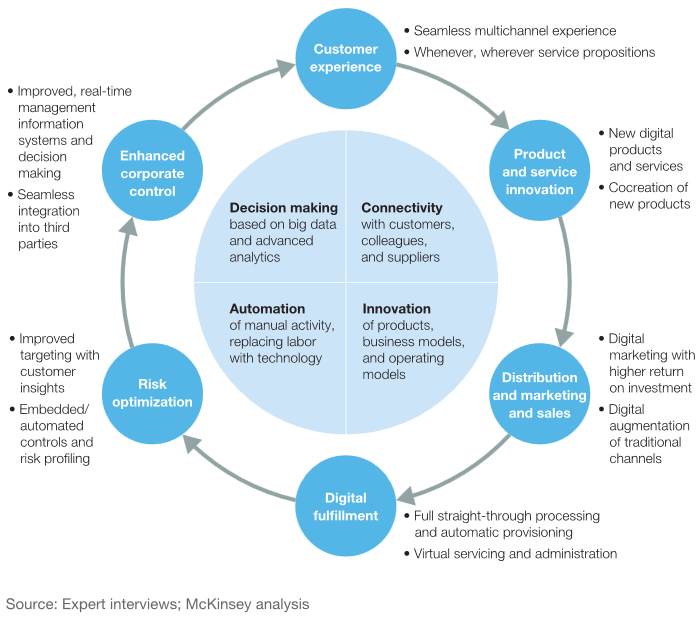
The other day I was contemplating what business capabilities were enabled by connecting a toaster to the Internet of Things. (Yes, this really exists. And no, I didn't come up with an answer.) Clearly technology is having an impact on every aspect of our lives and many business architects now find themselves in a strange place: after years of trying to distance themselves from IT and technology and be seen as part of the business, now the business is trying to embrace technology and understand what a digital transformation could mean to their business model. So what is a business architect to do? Adapt!
Paradigm Shift
Years ago the mission of many IT shops was to "serve the business". Corporate strategists would build grand strategies, business architects would develop a robust strategy execution plan, and then IT would bend-over-backward trying to deliver on what was asked. Then along comes companies like Amazon, Google, Uber, and Netflix, and entire industries are being disrupted and CEO's are taking note. Digital is no longer an option: transform or disappear. Companies are pouring investments into understanding how technology can be used to enable new capabilities, differentiate themselves from their competitors, and move into new markets. And whenever a business needs to make a big change, it is prime time for business architects to open their toolboxes and get to work.
Architecting Digital
The foundation of business architecture is the use of business capabilities, and understanding what is needed before defining how to deliver it. Emerging technologies and digital opportunities certainly bring new technology into the equation, but there is also a material impact on people, process and data. Business capability modeling remains an excellent tool for gaining consensus on what the priorities are and the potential impacts before diving into how they will be delivered. Framing up digital opportunities for the business is an important first step. McKinsey provides an articulate framework on how digital can reshape every aspect of the modern enterprise:

This framework demonstrates that digital opportunities extend beyond well-known areas such as big data and process automation. What digital products could you offer? How could you improve integration with partners? Help your business teams think more broadly. If this leads to a desire to change the business model and move into new areas, new capabilities may be required and traditional business architecture techniques can facilitate this.
"Doing digital" may require changes to your capability model that you may not expect. For example, the ability to deliver software iteratively and quickly is crucial in the digital age. Managing partnerships with numerous niche product and service providers in a fragmented market of suppliers can be challenging. Obtaining and retaining talent in such a hot area is also difficult. These are just some examples of areas where your business may need to adapt.
Digital Skills
Since digital programs are top priorities at most major companies, get ready to skill-up. Here are some of the most critical skills to focus on:
In summary, adapt, and do it quickly. There is no better time than now to build up these skills and provide your leadership something they are looking for: someone they can trust to successfully guide them through identifying what is needed to enable a digital transformation.
References Olanrewaju & Willmott. (2013, November). Finding your digital sweet spot. Retrieved December 27, 2016, from http://www.mckinsey.com/business-functions/digital-mckinsey/our-insights...
There are no products in your shopping cart.
| 0 Items |
Dean.. Very well put. I've
Nice article Dean. I really